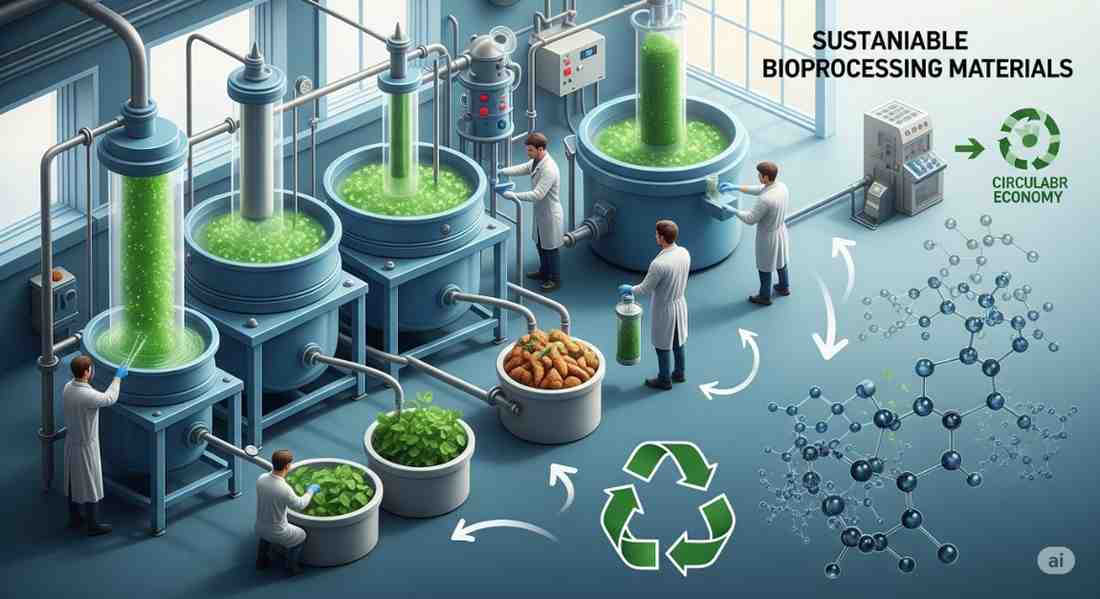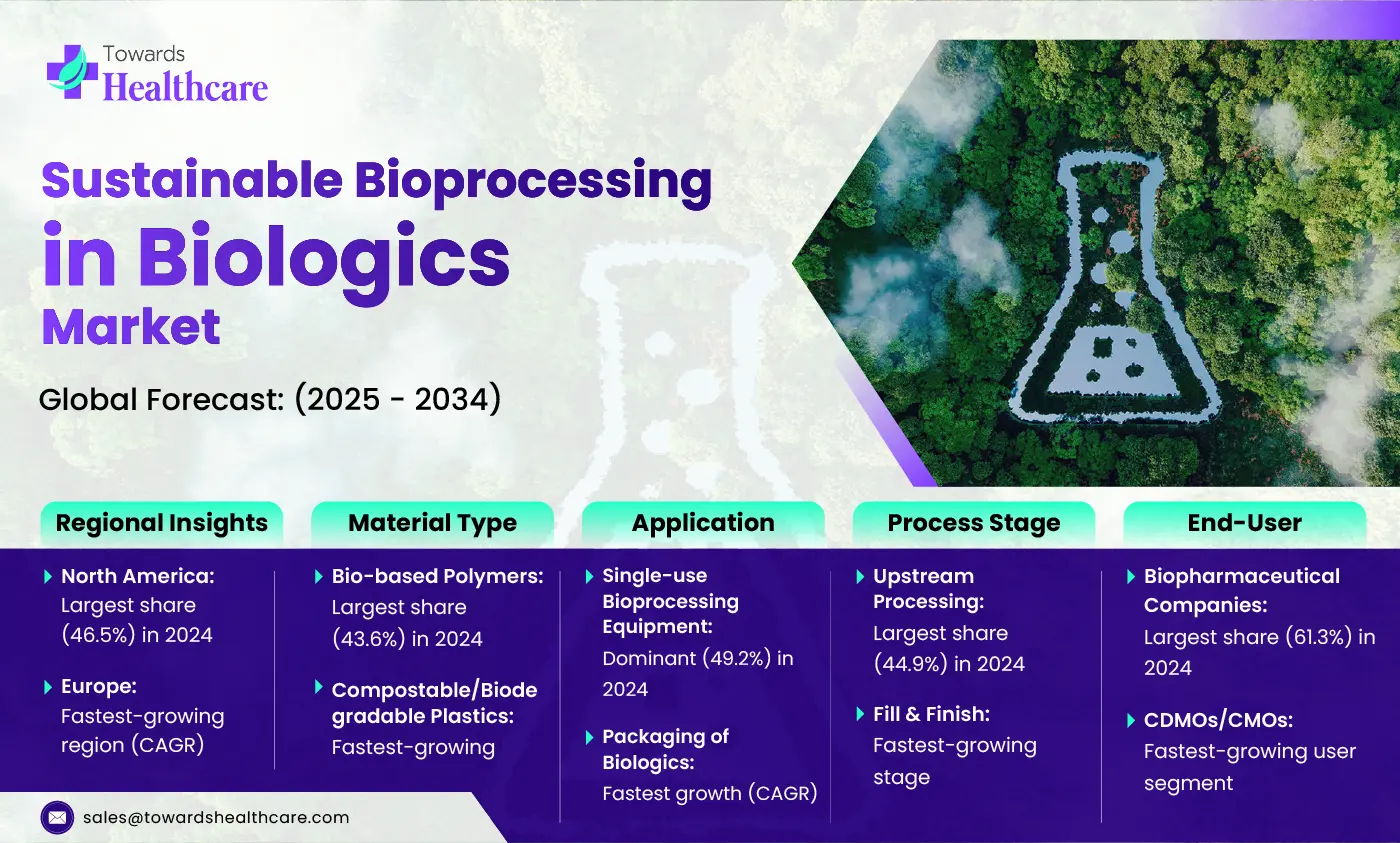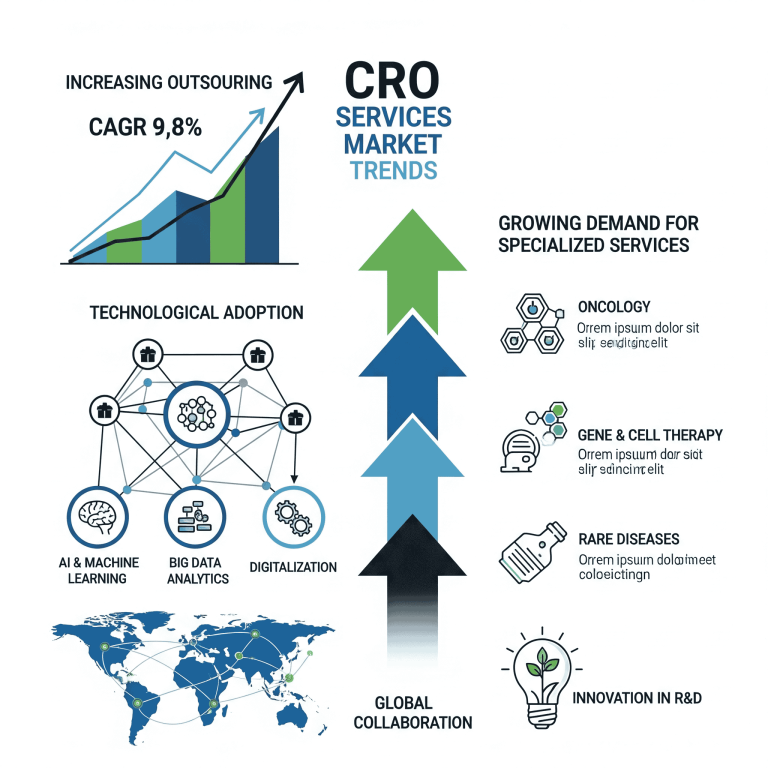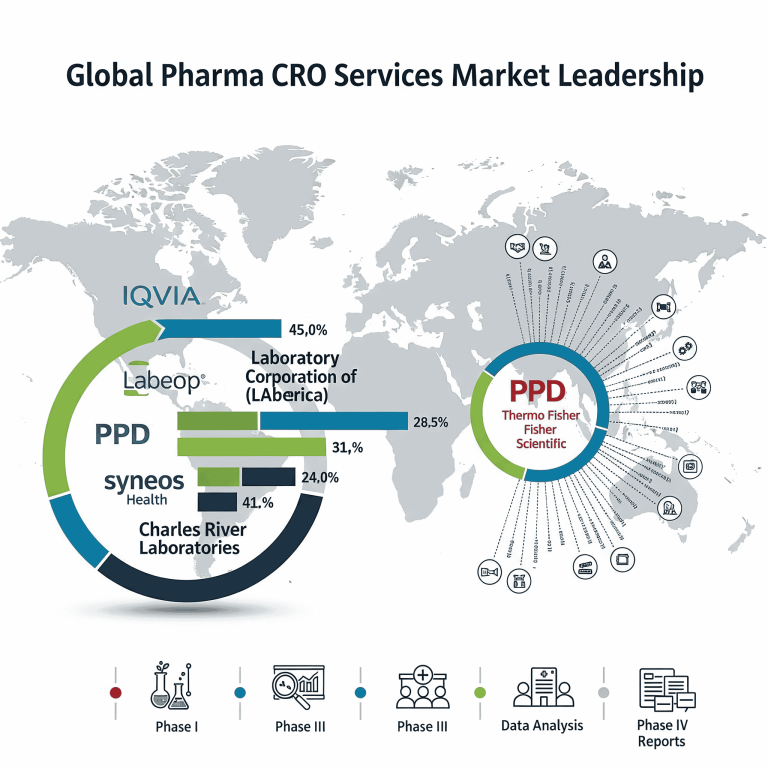
Sustainable manufacturing is rapidly evolving as industries embrace green technologies. At the forefront of this transformation is bioprocessing, which uses biological systems like bacteria and enzymes to produce eco-friendly materials. Unlike traditional manufacturing that relies heavily on fossil fuels and generates substantial waste, bioprocessing prioritizes renewable resources, minimizing emissions and environmental impact.
By innovating in bioprocessing technologies, companies can meet rising consumer demand for sustainable products while contributing to a greener industrial landscape.

Market Highlights
North America Leads the Way
North America dominated the sustainable bioprocessing materials market in 2024, holding a 46.5% revenue share. The U.S., with its supportive government policies and growing investments in sustainable manufacturing, has been a key contributor.
Europe Shows Fastest Growth
Europe is set to grow at the fastest CAGR during the forecast period, driven by strict environmental regulations and rising consumer awareness about eco-friendly solutions.
Bio-Based Polymers Take the Largest Slice
By material type, bio-based polymers secured the largest market share of 43.6% in 2024. Their biodegradable and renewable nature makes them an attractive alternative to conventional plastics.
Compostable Plastics Gain Momentum
Compostable and biodegradable plastics are expected to be the fastest-growing segment as industries move away from synthetic, non-biodegradable options.
Single-Use Equipment Dominates Applications
The single-use bioprocessing equipment segment held a 49.2% market share in 2024, reflecting the rising preference for disposable systems that reduce cross-contamination risks and support sustainable practices.
Invest in Our Premium Strategic Solution: https://www.towardshealthcare.com/download-databook/5799
Trends Shaping the Market
Green Investments on the Rise
In April 2025, Bloom Biorenewables raised $14 million in a Series A funding round led by Anaïs Ventures and Valquest Partners. Major players like Amcor are supporting such ventures, highlighting the growing interest in scaling eco-friendly innovations.
Eco-Friendly Packaging Solutions
Berry Global introduced clear polypropylene (PP) bottles for medical applications in October 2024, offering better sustainability and improved product protection over traditional PET bottles.
Innovative Single-Use Systems
In April 2024, SaniSure launched Fill4Sure, a custom single-use filling assembly to improve efficiency and safety in medicinal product filling processes.
Get All the Details in Our Solutions – Access Report Preview: https://www.towardshealthcare.com/download-sample/5799
Market Dynamics
Drivers: Waste Reduction
Sustainable bioprocessing addresses the environmental challenges of traditional biopharmaceutical manufacturing by cutting down on waste and using renewable resources efficiently.
Restraints: High Initial Costs
Adopting sustainable technologies often requires significant upfront investments in specialized equipment, making it harder for smaller players to enter the market.
Opportunities: The Shift to Low-Carbon Manufacturing
With rising consumer demand for eco-friendly products and increasing regulatory pressure, biomanufacturing is set to become a cornerstone of the low-carbon industrial economy.
Regional Insights
United States: Tackling Emissions in Healthcare
The U.S. healthcare sector produces over 614 million metric tons of CO2 annually, accounting for more than 10% of the nation’s greenhouse gas emissions. Initiatives like Yale’s Program on Health Care Environmental Sustainability (Y-PHES) are driving efforts to cut emissions across the industry.
Canada: Focus on Pharmaceutical Waste
Canadian pharmacies are adopting sustainable practices, including programs like the National Medication Return Program, which collects and safely disposes of expired medications to prevent environmental contamination.
If you have any questions, please feel free to contact us at sales@towardshealthcare.com
FAQs
1. What are sustainable bioprocessing materials?
Sustainable bioprocessing materials are eco-friendly, biodegradable, or bio-based materials used in manufacturing processes. They aim to minimize environmental impact while maintaining product quality and safety.
2. Why is North America leading the sustainable bioprocessing market?
North America holds the largest market share due to government policies promoting sustainability, high healthcare expenditure, and increased investments by key industry players.
3. What makes bio-based polymers a dominant segment?
Bio-based polymers are increasingly replacing synthetic materials because they are biodegradable, renewable, and meet the rising demand for sustainable products.
4. What challenges does the market face?
High initial costs for adopting sustainable technologies, such as specialized bioreactors and automation systems, remain a key barrier for smaller companies.
5. What are the latest innovations in the market?
Recent innovations include Bloom Biorenewables’ $14M funding to scale operations, Berry Global’s eco-friendly PP bottles, and SaniSure’s Fill4Sure single-use filling assembly.
To access the full market report : https://www.towardshealthcare.com/price/5799







